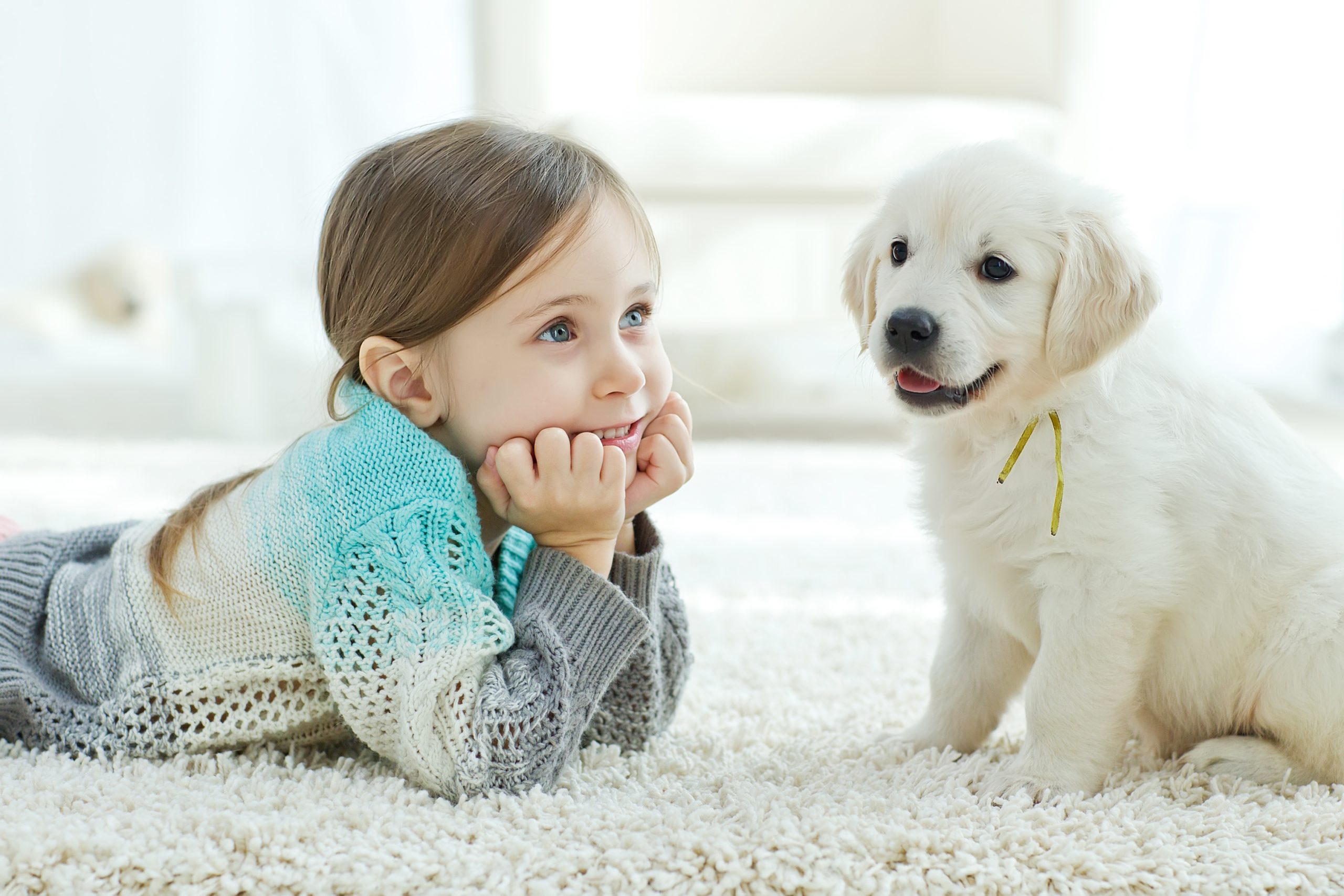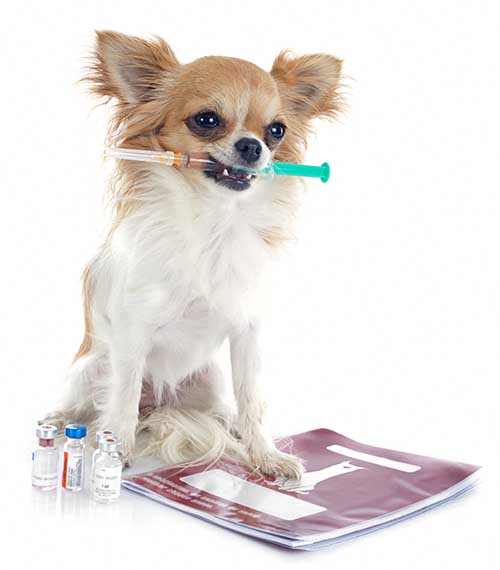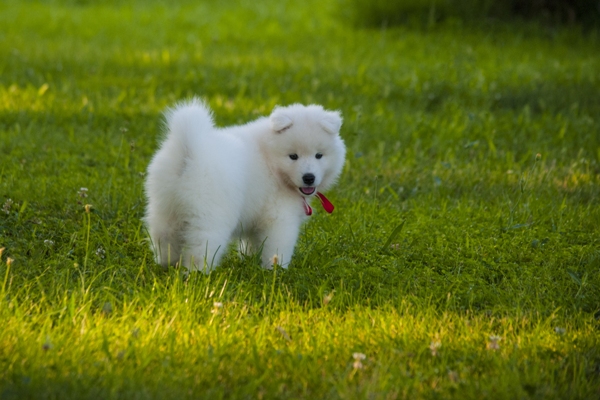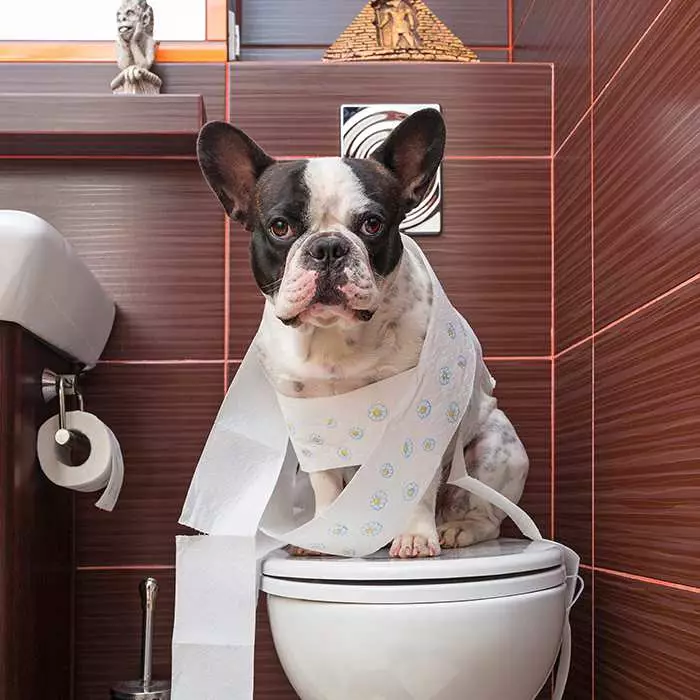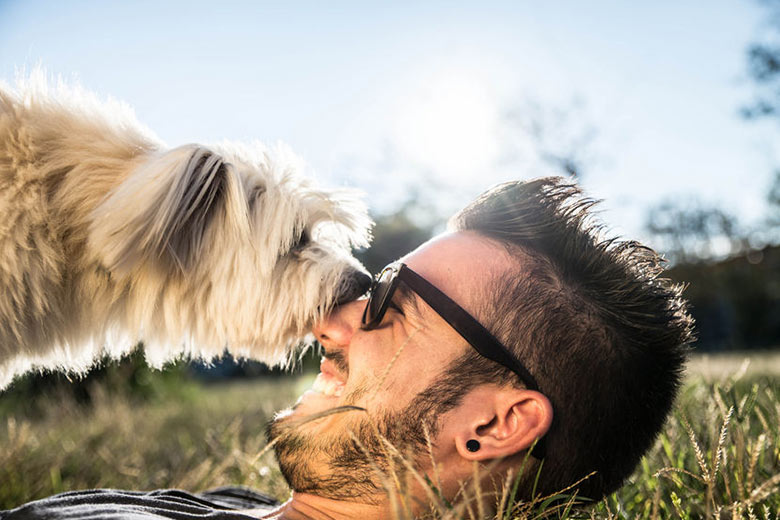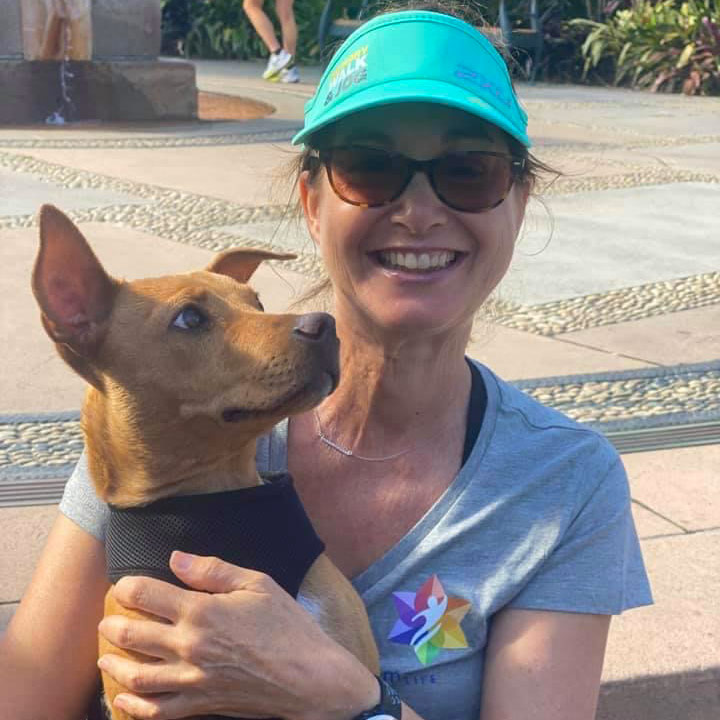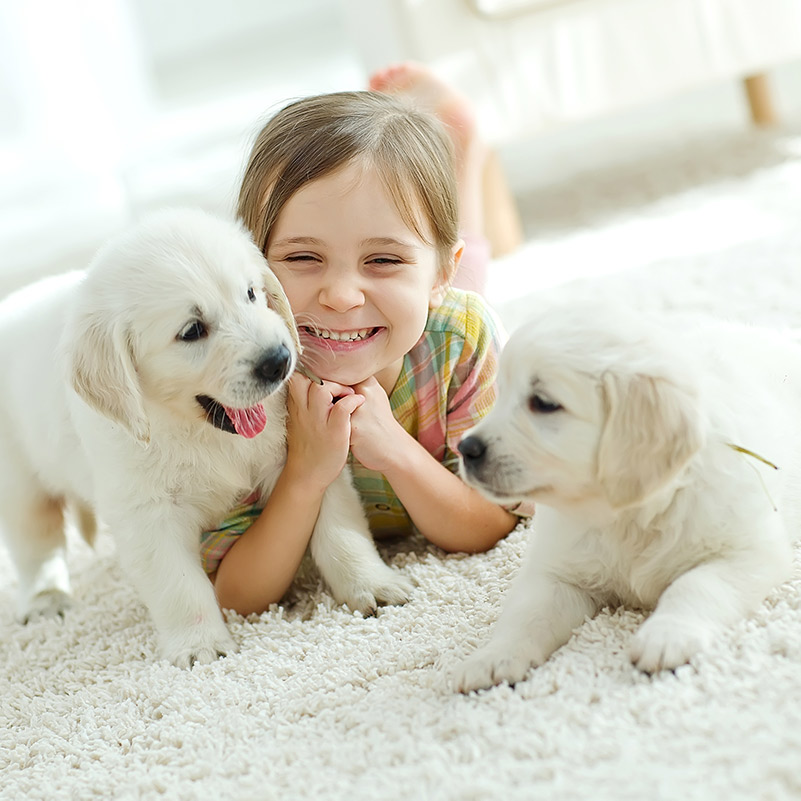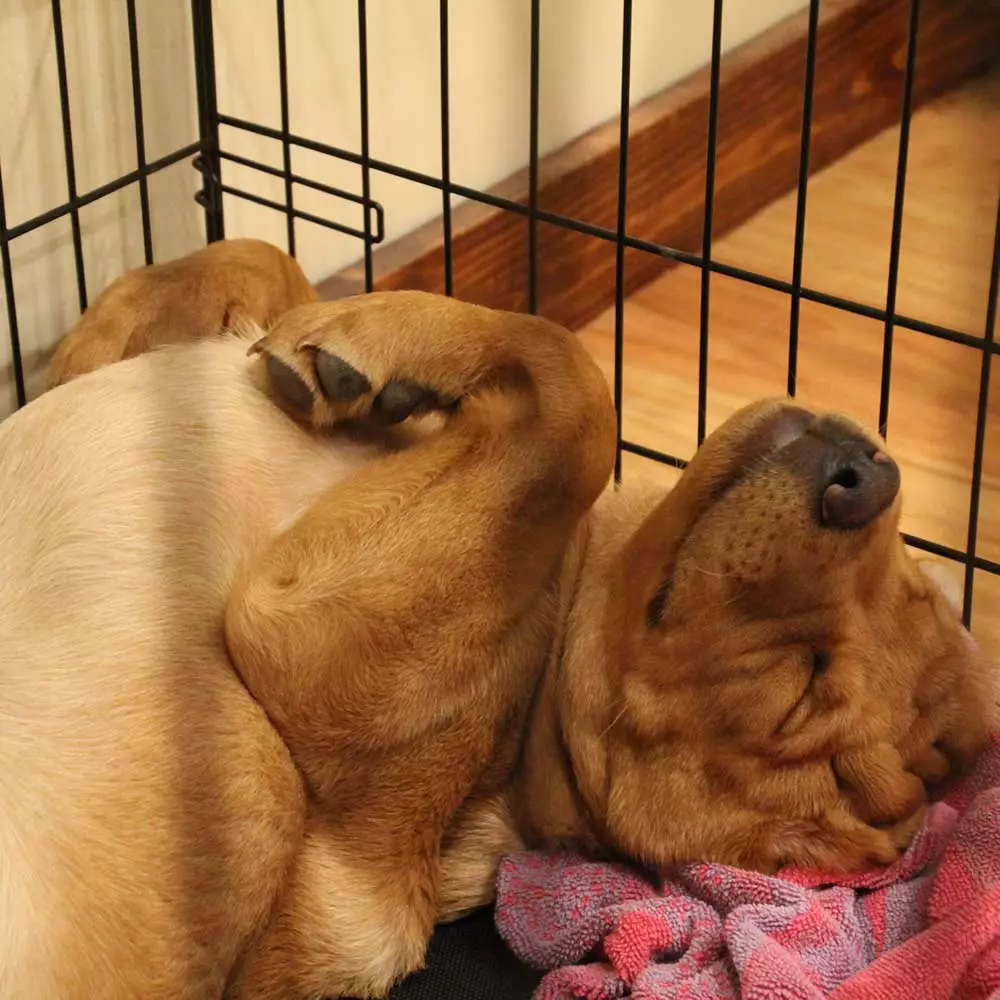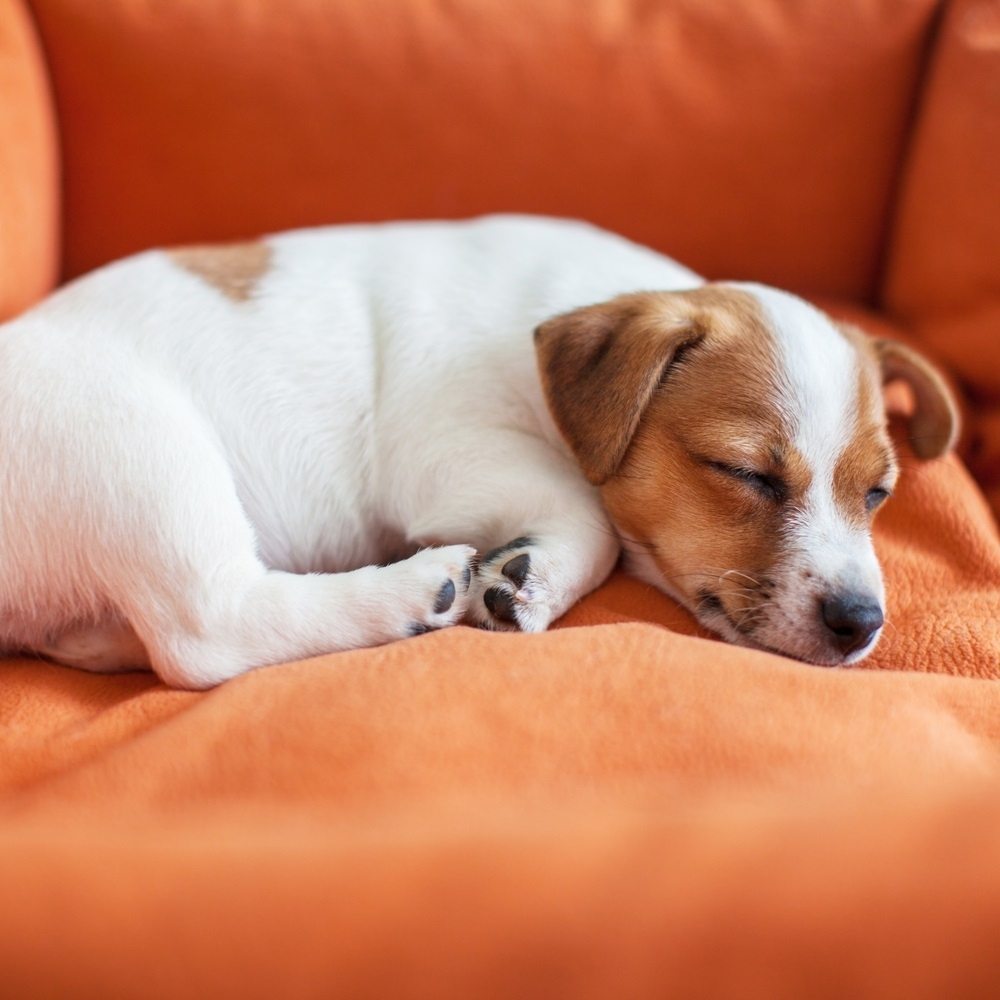How to prepare for your puppy’s first day at home
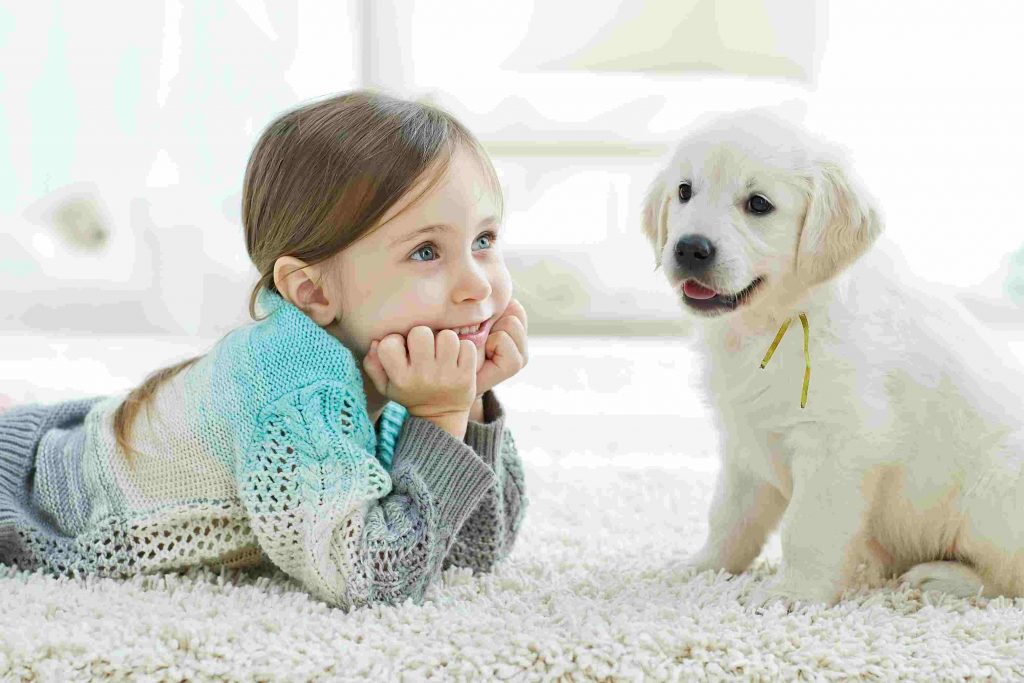
The big day is approaching, and you’re probably filled with excitement at the prospect of your first day with your new puppy. Your visions of puppys first day probably include cuddling and playing together and puppy falling asleep on your lap or shoulder. You may also have some less pleasant thoughts, like what to do about house training and whether to implement rules and routines from the first day puppy comes home.
 Nervousness and concern are just as normal as feelings of excitement leading up to the first day with your new puppy. After all, you and your new pup don’t exactly know each other yet, and if this is your first puppy or it’s been some time since you last had a puppy in the house, you may be wondering how to make the adjustment as smooth and stress-free as possible, for both of you.
Nervousness and concern are just as normal as feelings of excitement leading up to the first day with your new puppy. After all, you and your new pup don’t exactly know each other yet, and if this is your first puppy or it’s been some time since you last had a puppy in the house, you may be wondering how to make the adjustment as smooth and stress-free as possible, for both of you.
The most important thing you can do before the first day with your new puppy is to be well prepared, so that you can spend the first day focusing on bonding and making your pup feel secure and safe right from the start. In this article we provide all the important information you need to be super organized for your puppys first day home.
Basic things to prepare beforehand
Buy the necessary supplies
Make sure you have all the essential items you need for your puppy. Here’s a basic checklist of must-have puppy supplies for puppy’s first day:
- Food and water bowls
- High-quality puppy food
- Poo bags
- Dog bed
- Toys (suitable for puppy’s age and size)
- Healthy treats
- Playpen and/ or crate
- Puppy pads or puppy toilet to assist with toilet training
- Adjustable collar, harness and leash to correctly fit your puppy now without being too loose
- Collar tag with contact info
- Seatbelt buckle for the car or a crate
- Long-lasting, low fat chews like bully sticks to entertain and help settling your puppy in its pen or crate
Doggy-proof your home
- Close off rooms or areas that are off-limits for now (or permanently). You can use baby gates to do this.
- Install baby / puppy gates at the top and/or bottom of stairs.
- Set up the playpen before the puppy’s arrival.
- Ensure power cords and other cables are not accessible.
- Check for gaps under fences, gates, garage doors and any other potential escape routes.
- Check the garden for plants that are poisonous to dogs, including irises, brunfelsia, liliums, azaleas, mushrooms and many more.
- Pack away anything that could be in puppy’s reach and that could be harmful to your puppy or you don’t want to lose to sharp puppy teeth, such as kids’ toys, shoes, valuables, breakables, cleaning products, medication and any other items like plants that puppy should not have in her reach.
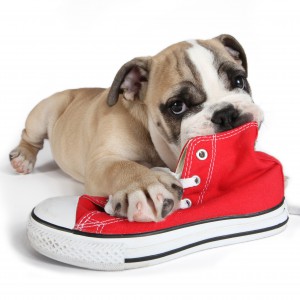
Plan to be present
If your work and life schedules allow, plan to take off at least a few days when you first bring your puppy home or to work from home for a few days. Or, schedule a long weekend as the right time to bring your puppy home. Remember that you pup may be feeling scared, anxious and overwhelmed by the huge changes she is experiencing. The puppy has just left the litter and the comfort of her mom and its siblings, has been picked up by a stranger and transported to a foreign place, and has potentially just been in a car or on a plane for the first time. Hence it is important to make it as easy as possible for the puppy to adjust to her new home.
Being at home as much as you can be for first few days will help her to feel secure and comfortable. You’ll be grateful for the time to help your puppy settle in and feel at home. You’ll also appreciate the opportunity to recover from possible sleep deprivation on your puppy’s first few nights!
Introducing puppy to surroundings & people
Familiarise her with her new environment
 Introduce you puppy gradually to different areas of your home. Be sure to supervise her as she explores these areas and not to let her out of your sight. Talk to her while she investigates her surroundings to reassure her about her new home.
Introduce you puppy gradually to different areas of your home. Be sure to supervise her as she explores these areas and not to let her out of your sight. Talk to her while she investigates her surroundings to reassure her about her new home.
Start off with those places where she will be spending most of her time initially – her sleeping spot, her eating place, her play area and her toileting area. Don’t overwhelm her with too many new places all at once. She can be introduced to the rest of the home later, when she is feeling more comfortable and relaxed.
Just like human babies, young puppies need frequent naps throughout the day. They actually need around 18 hours of sleep a day and tend to get moody and unsettled if they don’t get enough rest. Show your new pup her bed and allow her to doze off whenever she needs to. Don’t disturb her while she’s asleep; you can have a gentle play session whenever she wakes naturally during the course of the day.
Introducing her to her new family
If possible, introduce your puppy to one family member at a time, giving her a chance to meet each of you quietly. Children in the family are likely to be extremely excited at the prospect of your new puppy’s arrival, but it’s essential that their interactions do not overwhelm her.
Explain in advance to younger children that there will be plenty of time for touching and playing later on, but right now puppy is too small and can easily become overwhelmed by boisterous behaviour. Supervise young children carefully and discourage them from picking up the puppy themselves. Rather, place the puppy on their lap and show them how to stroke her gently. This is important because puppies can be wriggly and sometimes fall out of children’s arms and can sustain injuries if they are not held properly.
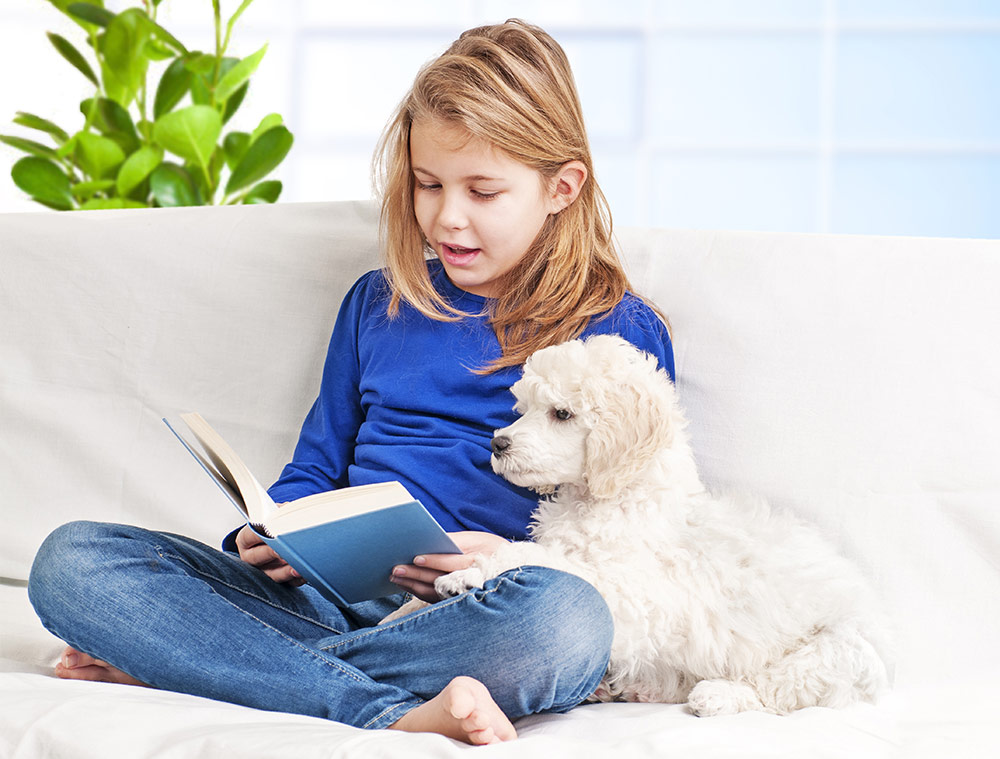
Keep visitors at bay
Your puppy’s first day at home should be a quiet one. It’s a time for the puppy to explore her new home and meet her new family. While it’s tempting to invite friends and extended family over to meet your new puppy right away and show her off, keep in mind that she is in a brand-new place with people she doesn’t know. So, rather focus on making your puppy’s first day safe, quiet, and stress-free; there will be plenty of time for visitors later on. When you think the time is right, invite small groups of visitors over to meet her, rather than the whole extended family or group of friends in one go.
Designated area
You can establish physical boundaries to help your puppy get used to her new home from the very first day by setting up a “puppy zone” – an area enclosed by a puppy fence or play pen. Show your puppy her new home base as soon as she gets home and entice her in with some toys, kibble or treats, so she enters it of her own accord. The more inviting you can make her designated area, the more likely she is to go in willingly and settle quietly.
Let her sniff around and explore her home base at her own pace. Give her a long-lasting treat such as a bully stick so that she spends some extended time (e.g. 30 minutes) entertaining herself in this designated area.
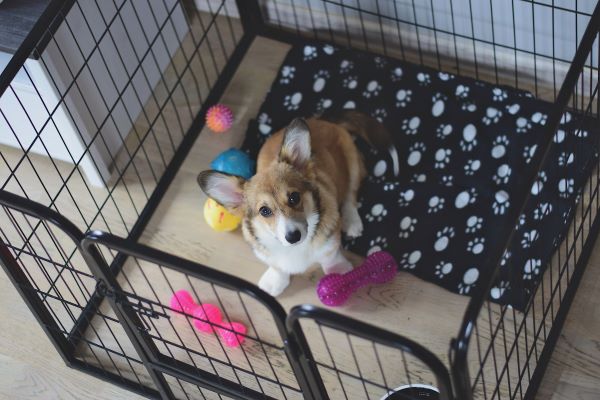
Rules, routines and house training
The first day with your new puppy is a time to let her settle in and teach her that she’s part of the family. But you also want to start her off on the right path with some basic house rules and a daily routine, and to implement them right from the first day.
House rules
It’s important to decide on the house rules with all family members before the first day and night with new puppy, so that everyone is on the same page. A puppy will become easily confused, for example, if one family member allows them on the sofa, but another doesn’t.
Setting up clearly defined rules and boundaries that are reinforced by everyone in the household will help your pup settle in, learn what’s acceptable and not acceptable, and be less confused.
Here are some questions you may want to consider creating rules around:
- Is your puppy allowed on the furniture?
- Where will she sleep? Is she allowed to sleep on your or the children’s beds?
- Is she allowed under the table during mealtimes?
- Is she allowed to be fed scraps at the table?
- Is she allowed to jump up on people?
- Are there any areas of the house that are off-limits?
Feeding routine
Most puppies will be leaving their breeder at the age of 8 weeks. At that age they generally eat three meals per day. Find out from the breeder what times of the day your puppy is accustomed to being fed, as well as the type of puppy food and the amount she was given. If possible, feed her at the same times; If not, decide what times are best suited to your household, and stick to them. An added advantage of doing so is that regular mealtimes tend to result in regular toileting times.
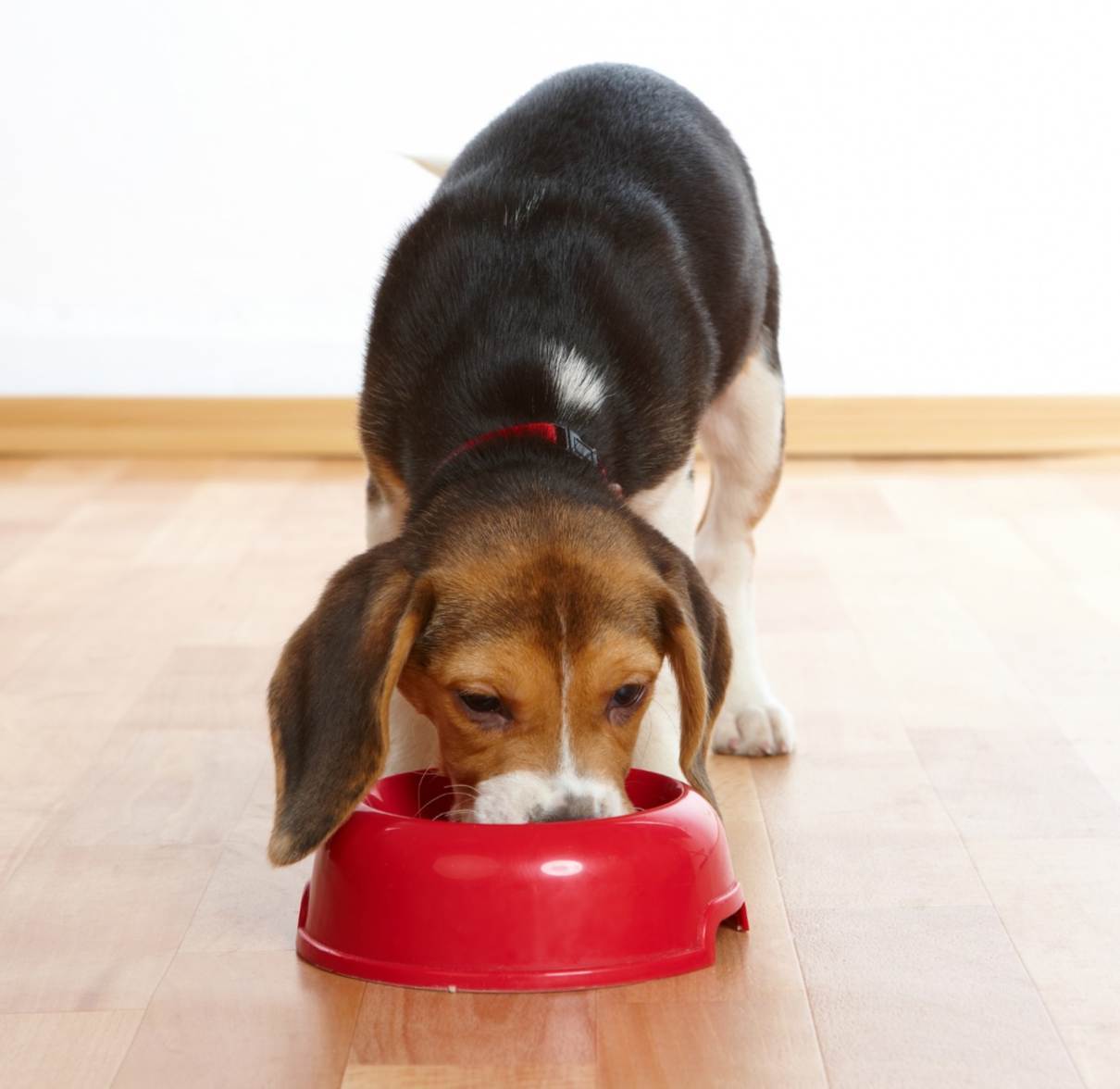
Toilet training
Along with a consistent daily routine, puppies need rules and boundaries in order to learn proper in-home behaviour. While some can be introduced more gradually, when it comes to toilet training, your best bet is to start immediately – in fact, as soon as you arrive home. Accidents are bound to happen, but you can start your puppy off on the right path by establishing a toileting routine from day one.
When you first arrive home, give your puppy a chance to relieve herself in an area you have designated for her toileting. Allow her 10 to 15 minutes, and if she hasn’t toileted, take her inside and keep her on leash or in the playpen to prevent accidents ion the house and then try again 10 minutes later. Whenever she pees or poops in the right place, praise her right away with lots of praise and a yummy treat. The key is to be consistent.
Young puppies have small bladders and tend to pee frequently, so after your puppy’s first successful toilet expedition, plan on potty breaks every 30 minutes to an hour. You need to be extremely vigilant in the early stages, or pup will end up using your house as her personal restroom. If you see her start to sniff around, circle, whimper, or squat then quickly take her out to her designated potty place.
Additionally, take your puppy out to her toileting spot:
- First thing in the morning
- After each meal
- After every drink
- After a nap
- After playtime
- Right before bedtime
Toileting tips:
- Try to make sure she does a pee or poop outside each time before you take her back indoors.
- Put down puppy pads indoors and around her designated area in case of accidents.
- Stick to your puppy’s eating schedule – regular mealtimes tend to result in regular toileting times.
- Always supervise her toileting so you can praise and reward (or mop up any accidents) right away.
- Give her lots of praise and some yummy treats when she potties in the right place.
- Don’t punish your puppy if she has an accident. Just ignore the undesirable behaviour so that you’re not giving her any attention for it.
- Be consistent, persistent and patient.
Spending time with your new puppy
We suggest that you pick up your puppy as early as possible on the first day puppy comes home. That way, you have most of the day to spend together and can start getting to know each other.
Everything will be new and possibly overwhelming for her, so take things slowly and give her plenty of time to adjust and to become comfortable in your company. Be a calming and gentle presence, without overwhelming her with too much stimulation or excessive cuddles, games or play. Take the lead from your puppy in how much contact she wants; this will help establish her trust in you.
Give puppy your undivided attention, and don’t leave her unsupervised or out of your sight. If you are unable to do this for any period of time, be sure to confine her in a crate, playpen or fenced-off area. It’s important to keep your puppy under constant supervision not only for potty training purposes, but to keep her out of trouble in general. Unsupervised pups are sure to find something undesirable or even dangerous to chew on, whether a shoe, cell phone or remote control. This can be costly for you and dangerous for your puppy.
Tips to help things go smoothly on puppy’s first day home
- Bring home a blanket or other bedding item from the breeder with the scent of your pup’s mum and siblings on it. This can be very comforting for her on her first day.
- Use treats to make positive associations with new experiences.
- Be patient and consistent.
- Talk to her in a gentle, soothing tone.
- Remember that your puppy has just been separated from her mum and siblings, so she may understandably be feeling sad, confused and scared.
- Plan on several nap times during the day and set a puppy bedtime for the night. Young puppies need a lot of sleep (most sleep 16 to 18 hours per day).
- Don’t leave the puppy unattended.
Final word…
Now that you have the know-how to be completely organised and prepared for your first day with your new puppy, you can relax and enjoy your time together. With less to worry and stress about, and lots of praise, cuddles and positive reinforcement, you will be able to begin bonding with each other right away and get your relationship off to the very best start!
Puppies are very adventurous and highly accident prone, and often end up hurting themselves whilst they are still growing. Their underdeveloped immune system means they are also vulnerable to getting infections and catching diseases.
Consider pet insurance to help protect you and your puppy from the start. Get your first 2 months cover free 2!


